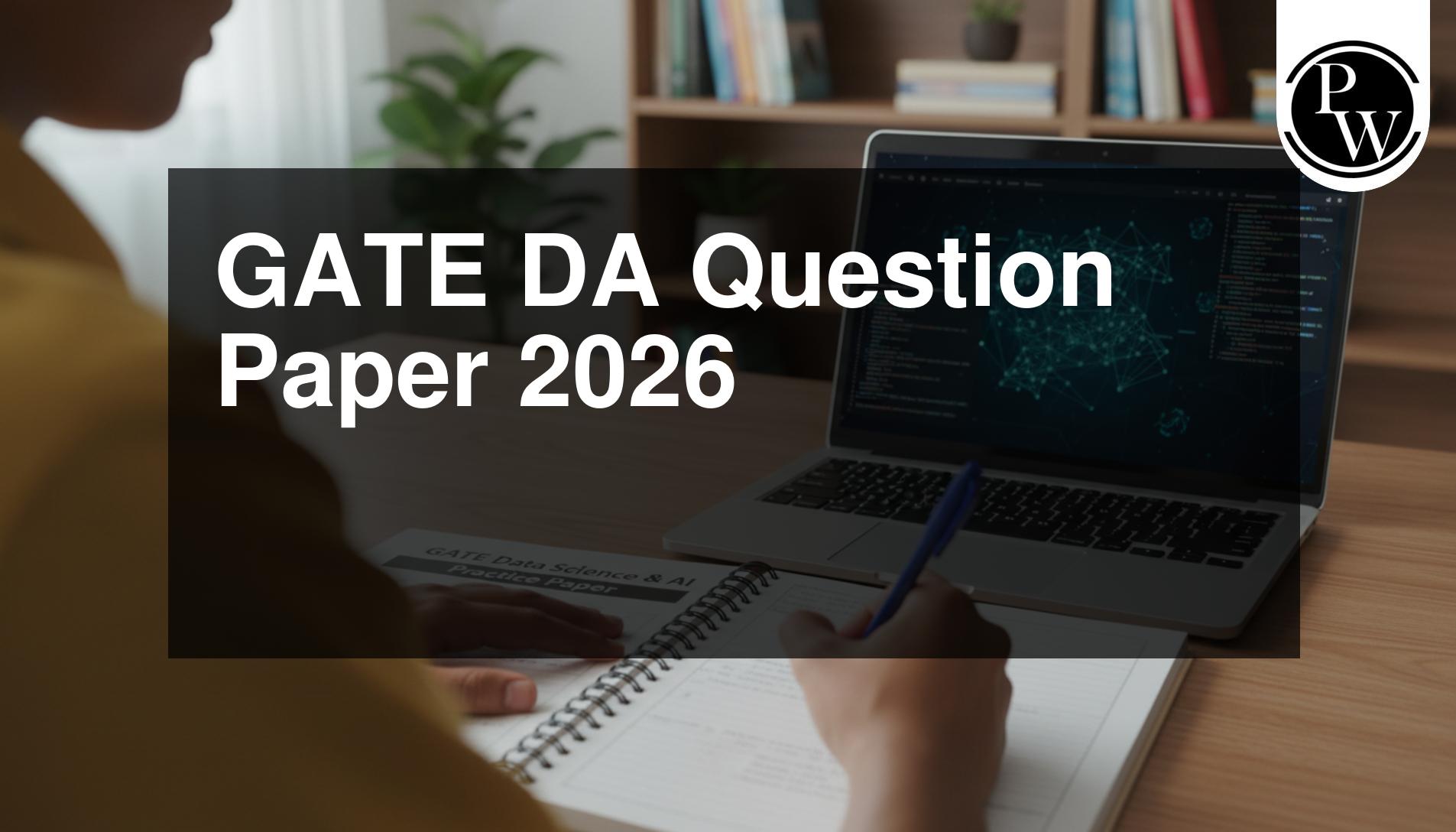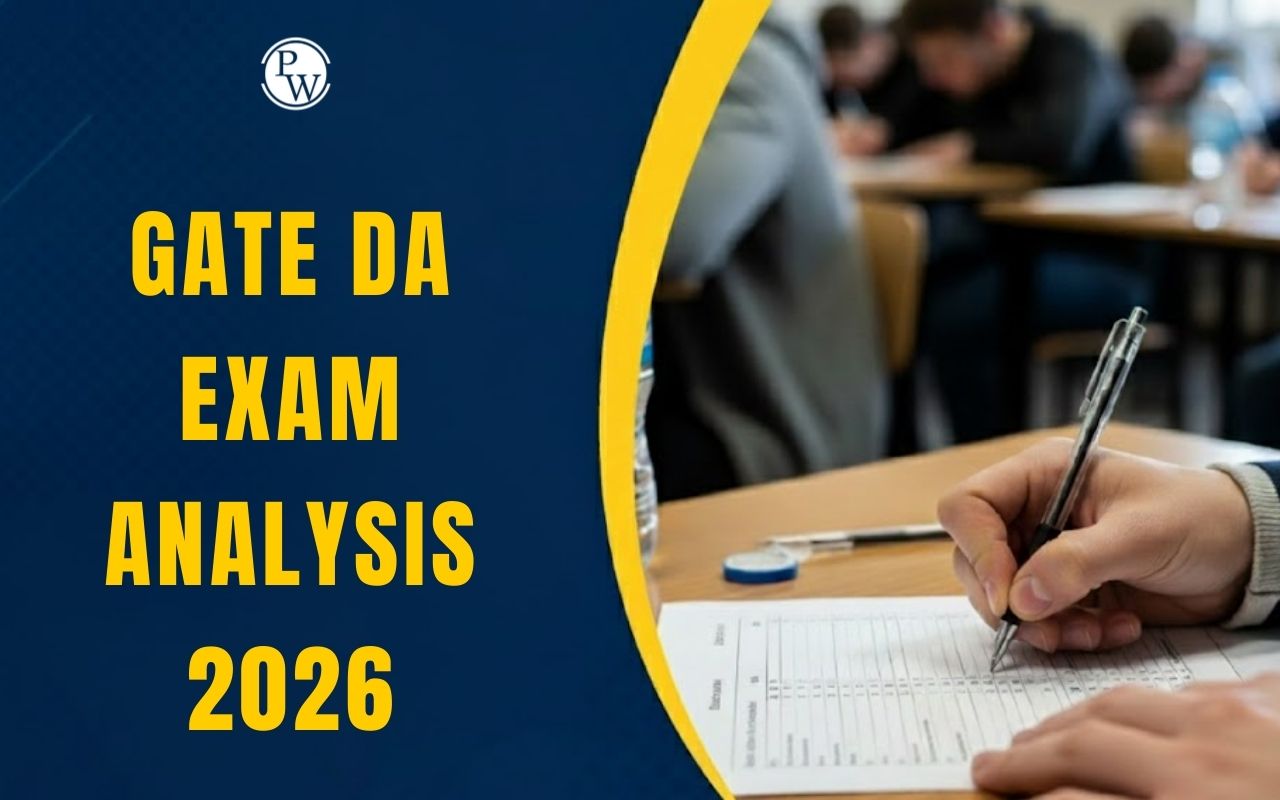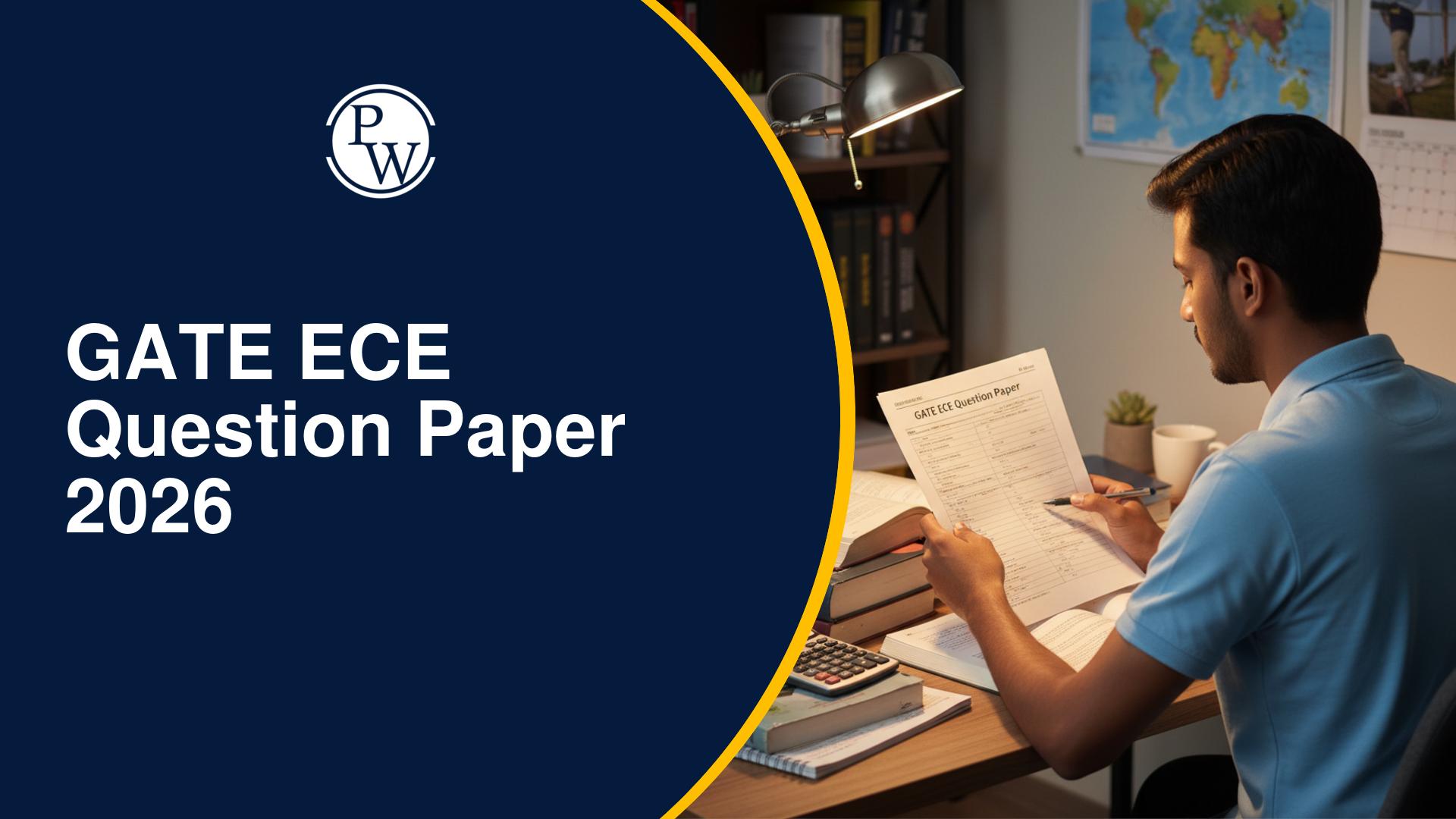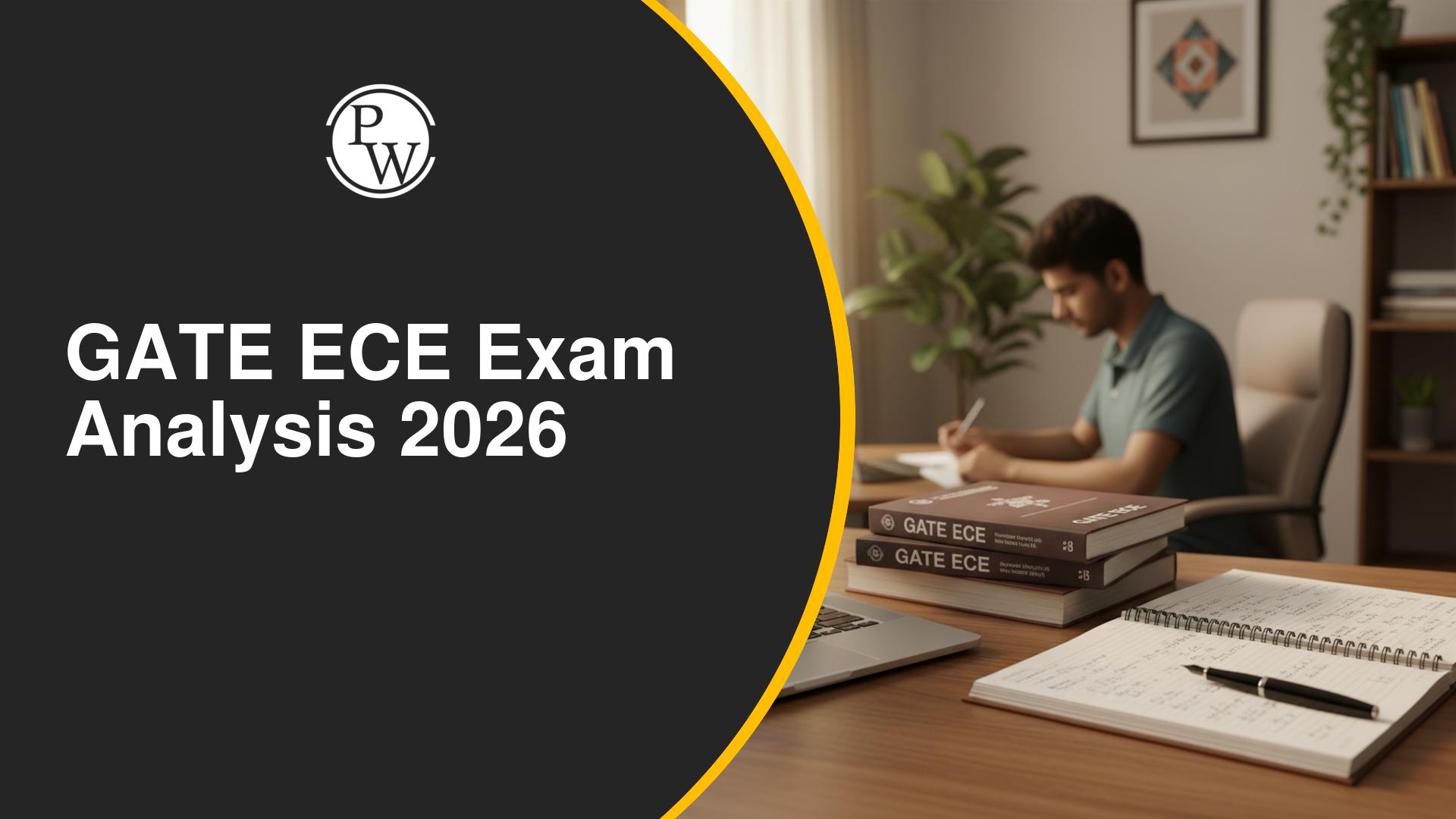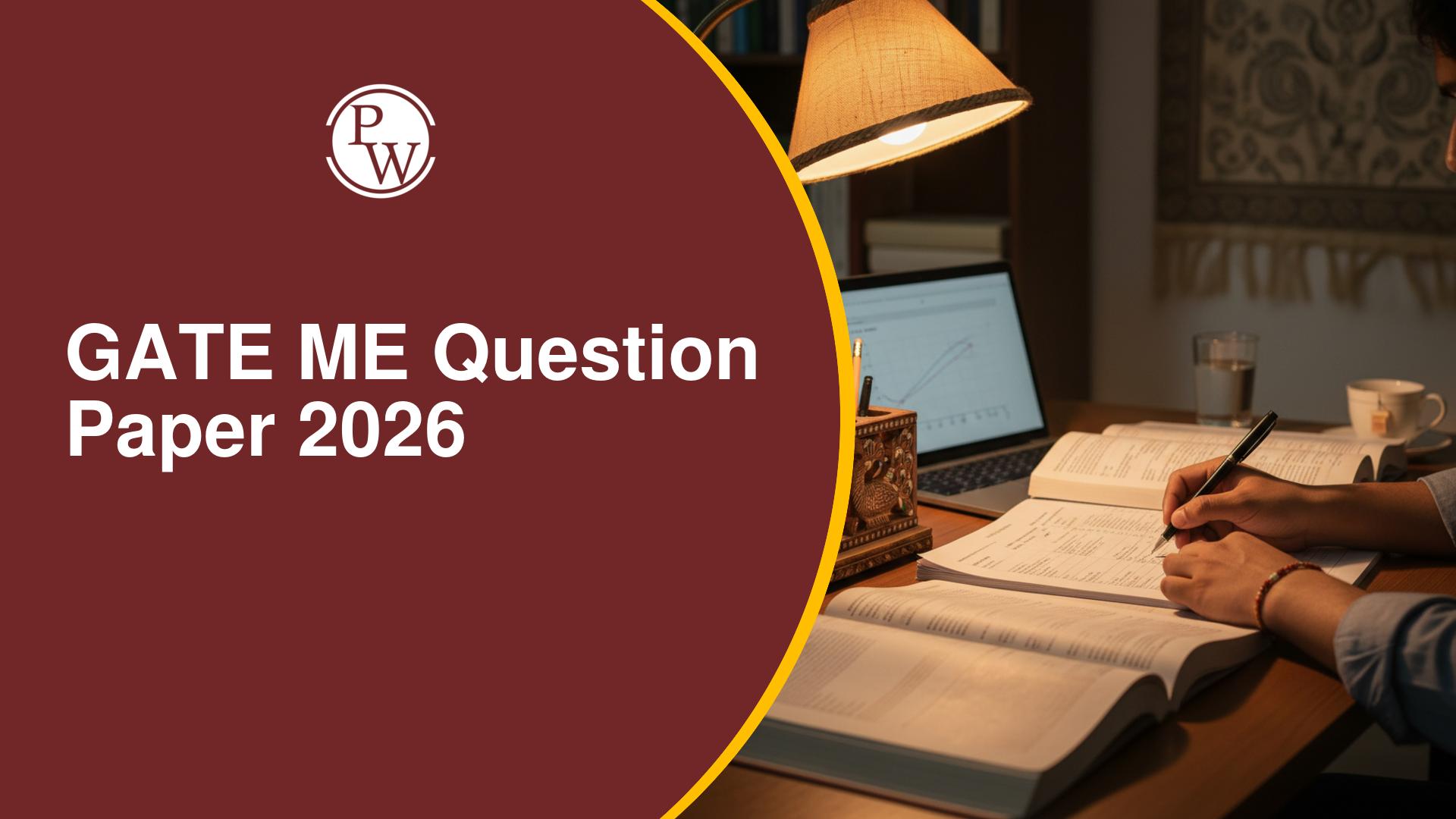
GATE Chemical Engineering Syllabus 2026: The Indian Institute of Technology, Guwahati, will conduct the GATE 2026 examination for 30 various branches including Chemical Engineering. Aspirants who wish to ace the GATE CH Paper 2026 with a good score must thoroughly review the syllabus and commence their preparation.
The GATE Syllabus for Chemical Engineering is divided into various sections, including Engineering Mathematics and Core Chemical Engineering subjects. Those who are going to appear for GATE CH Exam 2026 must have an in-depth understanding of syllabus.
A proper understanding of the syllabus is necessary to get familiar with important topics and the weightage of subjects. Candidates must go through the topic-wise GATE Chemical Engineering Syllabus 2026 to gain a detailed idea of the difficulty level of the paper. In this article, we have compiled the topic-wise coverage of the GATE CH Syllabus and shared a direct link to access the comprehensive syllabus in PDF format.
GATE Chemical Engineering Syllabus 2026
The GATE chemical engineering syllabus is divided into nine major sections, include Engineering Mathematics, Process Calculations and Thermodynamics, Fluid Mechanics and Mechanical Operations, Heat Transfer, Mass Transfer, Chemical Reaction Engineering, Instrumentation and Process Control, Plant Design and Economics, and Chemical Technology. This article includes the detailed GATE CH Syllabus 2026 to help the candidates to excel-in their preparation for the upcoming examination.
GATE 2026 Chemical Engineering Syllabus
The GATE Chemical Engineering Syllabus 2026 covers a total of nine sections consisting of various topics. Aspirants preparing for GATE 2026 may refer to the topic-wise table given below in order to cover all the sections of the GATE 2026 Chemical Engineering syllabus:
| GATE Chemical Engineering Syllabus 2026 | |
| Subjects | Topics |
| Section 1: Engineering Mathematics |
|
| Section 2: Process Calculations and Thermodynamics | Steady and unsteady state mass and energy balances include multiphase, multicomponent, reacting, and non-reacting systems. Use of tie components; recycle, bypass, and purge calculations; Gibb’s phase rule and degree of freedom analysis First and Second laws of thermodynamics. Applications of first law to close and open systems. Second Law and Entropy. Thermodynamic properties of pure substances: Equation of State and residual properties, properties of mixtures: partial molar properties, fugacity, excess properties, and activity coefficients; phase equilibria: predicting VLE of systems; chemical reaction equilibrium |
| Section 3: Fluid Mechanics and Mechanical Operations | Fluid statics, surface tension, Newtonian and non-Newtonian fluids, transport properties, shell-balances including differential form of Bernoulli equation and energy balance, equation of continuity, equation of motion, equation of mechanical energy, Macroscopic friction factors, dimensional analysis, and similitude, flow through pipeline systems, velocity profiles, flow meters, pumps and compressors, elementary boundary layer theory, flow past immersed bodies including packed and fluidized beds, Turbulent flow: fluctuating velocity, universal velocity profile, and pressure drop. Particle size and shape, particle size distribution, size reduction and classification of solid particles; free and hindered settling; centrifuge and cyclones; thickening and classification, filtration, agitation and mixing; conveying of solids. |
| Section 4: Heat Transfer | Equation of energy, steady and unsteady heat conduction, convection and radiation, thermal boundary layer and heat transfer coefficients, boiling, condensation, and evaporation; types of heat exchangers and evaporators and their process calculations; design of double pipe, shell, and tube heat exchangers, and single and multiple effect evaporators. |
| Section 5: Mass Transfer | Fick’s laws, molecular diffusion in fluids, mass transfer coefficients, film, penetration, and surface renewal theories; momentum, heat, and mass transfer analogies; stage-wise and continuous contacting and stage efficiencies; HTU & NTU concepts; design and operation of equipment for distillation, absorption, leaching,liquid-liquid extraction, drying, humidification, dehumidification and adsorption, membrane separations (micro-filtration, ultra-filtration, nano-filtration and reverse osmosis). |
| Section 6: Chemical Reaction Engineering | Theories of reaction rates; kinetics of homogeneous reactions, interpretation of kinetic data, single and multiple reactions in ideal reactors, kinetics of enzyme reactions (Michaelis-Menten and Monod models), non-ideal reactors; residence time distribution, single parameter model; non-isothermal reactors; kinetics of heterogeneous catalytic reactions; diffusion effects in catalysis; rate and performance equations for catalyst deactivation. |
| Section 7: Instrumentation and Process Control | Measurement of process variables; sensors and transducers; P&ID equipment symbols; process modeling and linearization, transfer functions and dynamic responses of various systems, systems with the inverse response, process reaction curve, controller modes (P, PI, and PID); control valves; transducer dynamics; analysis of closed-loop systems including stability, frequency response, controller tuning, cascade, and feed-forward control. |
| Section 8: Plant Design and Economics | Principles of process economics and cost estimation including depreciation and total annualized cost, cost indices, rate of return, payback period, discounted cash flow, optimization in process design, and sizing of chemical engineering equipment such as heat exchangers and multistage contactors. |
| Section 9: Chemical Technology | Inorganic chemical industries (sulfuric acid, phosphoric acid, chlor-alkali industry), fertilizers (Ammonia, Urea, SSP and TSP); natural products industries (Pulp and Paper, Sugar, Oil, and Fats); petroleum refining and petrochemicals; polymerization industries (polyethylene, polypropylene, PVC and polyester synthetic fibers). |
GATE Chemical Engineering Syllabus PDF
The Indian Institute of Technology Guwahati published the GATE Chemical Engineering Syllabus 2026 PDF on its official website @gate.iitg.ac.in. The GATE Chemical Engineering Syllabus is distributed into nine primary sections, each covering essential topics on which questions will be asked.
These sections encompass various subjects such as Engineering Mathematics, Process Calculations and Thermodynamics, Fluid Mechanics and Mechanical Operations, Heat Transfer, Mass Transfer, Chemical Reaction Engineering, Instrumentation and Process Control, Plant Design and Economics, and Chemical Technology. Aspirants can download the GATE Chemical Engineering Syllabus PDF using the direct link below to create an effective study plan.
GATE CH Syllabus 2026 - Marking Scheme
Understanding the marking scheme for GATE Chemical Engineering paper is greatly beneficial for aspirants. They can prioritize the topics in the GATE exams by being thorough with the marking framework. Further details regarding the GATE syllabus for Chemical Engineering marking criteria are outlined below.
- In the GATE Chemical Engineering (CH) exam, the General Aptitude (GA) section carries a weightage of 15 marks.
- The remaining 85 marks are allocated for the subject-specific section.
- Thus, the total marks for Chemical Engineering are 100.
- The GATE exam duration is 180 minutes, or 3 hours.
GATE Chemical Engineering Syllabus 2026 Weightage
Applicants can check the Subject Wise Weightage for GATE Chemical Engineering to plan their preparation strategy for every subjects. The marks distribution for GATE 2026 Chemical Engineering is given below:
| GATE Chemical Engineering Syllabus Weightage | |||
| Stream/ Course | Subject | Number of Questions | Marks Allotted |
| GATE Chemical Engineering | General Aptitude | 10 | 15 |
| Engineering Mathematics | 10 | 13 | |
| Chemical Engineering Subjects | 45 | 72 | |
| Total | 65 | 100 | |
Ace your GATE preparation with Physics Wallah’s GATE Online Courses . PW GATE Online Coaching offers comprehensive live sessions tailored to the syllabus, invaluable study materials, practice tests, and much more.
GATE Chemical Engineering Syllabus 2026 FAQs
Q. What topics are covered in the GATE chemical engineering syllabus 2026?
Q. Who is eligible for the GATE 2026 chemical engineering exam?
Q. How to download the GATE Chemical Engineering Syllabus 2026 PDF?
Q. Is the official GATE 2026 syllabus for chemical engineering released?


